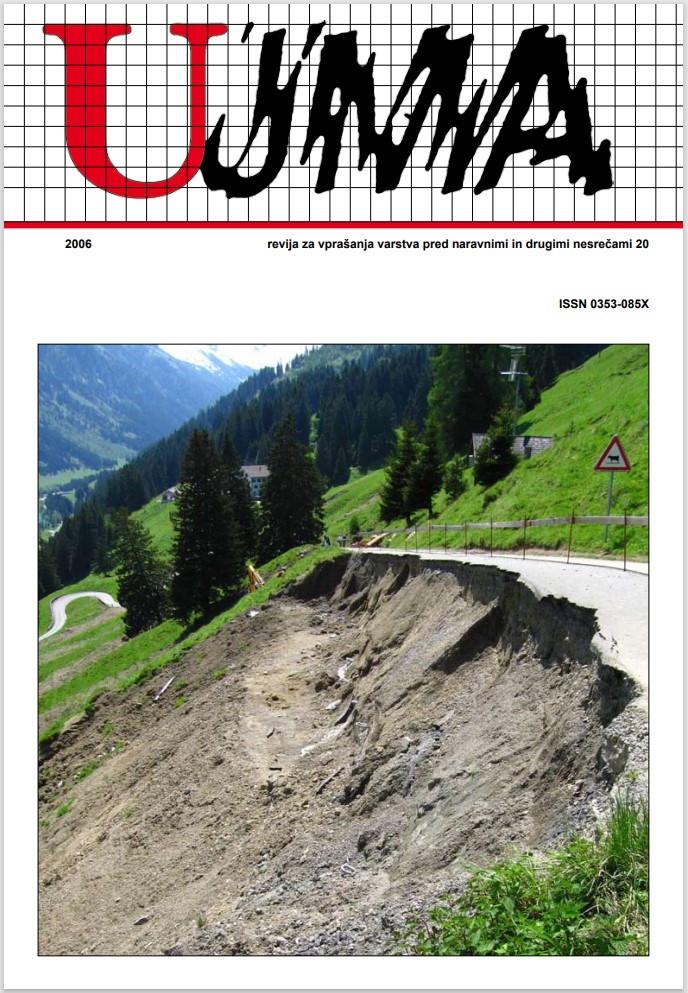CLIMATE CHANGE AND NATIONAL SECURITY
Abstract
Weather-related events have an enormous impact on society, since they influence food supply, conditions in cities and communities, as well as access to clean water and energy. There is substantial evidence to indicate that significant global warming will occur during the coming decades. We are already facing weather related disasters, more hurricanes, monsoons, floods and dry spells in regions around the world. Further climate change and its follow-on effects pose a severe risk to political, economic, and social stability. The aggregate effects of climate change at global and regional levels will be negative, especially in the context of multiple stresses, and will lead us to an increasingly disorderly and potentially violent world. That environmental problems can become security problems is now well recognised in policy. Following this definition of security, climate change is a security issue for states, communities and individuals. It is a problem that is complex in origin and has uncertain impact. Climate change is becoming the most serious form of environmental change and the most serious security problem that Slovenia faces. The potential impact of climate change on Slovenia different systems and sectors must be considered as a national security issue as soon as possible.
References
Bergant, K., Kajfež-Bogataj, L., 2004. Nekatere metode za pripravo regionalnih scenarijev podnebnih sprememb. Acta agric. slov., 2004, vol. 83, št. 2, str. 273–287.
Brauch, H. G., Carius, A., Oberthür, S., Tänzler, D., 2002. Climate Change and Conflict. Federal Ministry for the Environment, Nature Conservation and Nuclear Safety. Public Relations Division, Berlin, 144 p.
Brauch, H. G., 2003. Security and Environment Linkages in the Mediterranean: Fourth Phase of Research on Human and Environmental Security and Peace. V: Brauch, H. G.; Selim, M., Liotta, P.H.; Chourou, B.; Rogers, P. (Eds.): Security and Environment in the Mediterranean. Conceptualising Security and Environmental Conflicts. Berlin-Heidelberg: Springer .
EEA, 2004. Impacts of Europe changing climate. An indicator-based assessment. European Environment Agency, Copenhague (Denmark), Report 2/2004, Office for official publications of the European communities, Luxembourg, 107 pp.
Epstein, P. R., 2001. Climate change and emerging infectious diseases, Microbes and Infection, (3), 9: 747–754.
Guardian Unlimited, 2003. What effect will climate change have on the world? http://www.guardian.co.uk/
Ghouri, S. S., 2006. Correlation between energy usage and the rate of economic development . OPEC Review, Vol. 30, No. 1, pp. 41–54.
Houghton, J. T. in sod., 2001. Climate change 2001: The scientific basis. Cambridge, Cambridge Univ. Press: 752 s. 2001. http://www.grida.no/climate/ipcc_tar/wg1/index.htm
IEA (International Energy Agency), 2005. World Energy Outlook 2005- http://www.iea.org
Kajfež-Bogataj, L., 2005. Podnebne spremembe in njihovi vplivi na kakovost življenja ljudi. Acta agric. Slov. let. 85, št. 1, str. 41-54
Kajfež-Bogataj, L. in Bergant, K., 2005a. Podnebne spremembe v Sloveniji in suša. Ujma, št. 19, 37–41.
Kajfež-Bogataj, L. in Bergant, K., 2005b. Kakšno bo podnebje v Sloveniji v tem stoletju? Ujma, št. 19, str. 218–223.
Marland, G., T in sod., 2005. Global, regional, and national CO2 emissions. In Trends: A Compendium of Data on Global Change. Carbon Dioxide Information Analysis Center, Oak Ridge National Laboratory, U.S. Department of Energy, Oak Ridge, Tenn., U.S.A. http://cdiac.esd.ornl.gov/trends/emis/em_cont.htm
Medvladni panel za podnebne spremembe, IPCC. http://www.ipcc.ch/activity/workshops.htm
Münchener Rückversicherungs-Gesellschaft, 2006. Jahresrückblick Naturkatastrophen 2005. Edition Wissen. Topics Geo 2005. 51 p.
Parry, M. et al., 2001. Millions At Risk. Global Environment Change 11:3(2001): 1-3; http://www.cru.uea.ac.uk/tiempo/floor0/archive/issue4445/ t4445a7.htm
Schwartz, D. M., 2002. The Environment and Violent Conflict. In: Munn, Ted (Ed.): Encyclopedia of Global Environmental Change, vol. 5, Timmerman, Peter (Ed.): Social and Economic Dimensions of Global Environmental Change. Chichester, John Wiley: s.137–149.
Shearer, A.W., 2005. Whether the weather: comments on ‘An abrupt climate change scenario and its implications for United States national security’. Futures, Vol.37, 6: p. 445–463.
Downloads
Published
Issue
Section
License

This work is licensed under a Creative Commons Attribution-NonCommercial-NoDerivatives 4.0 International License.
The articles are made available to the public under Creative Commons Attribution-NonCommercial-NoDerivatives 4.0 International (CC BY-NC-ND 4.0).


